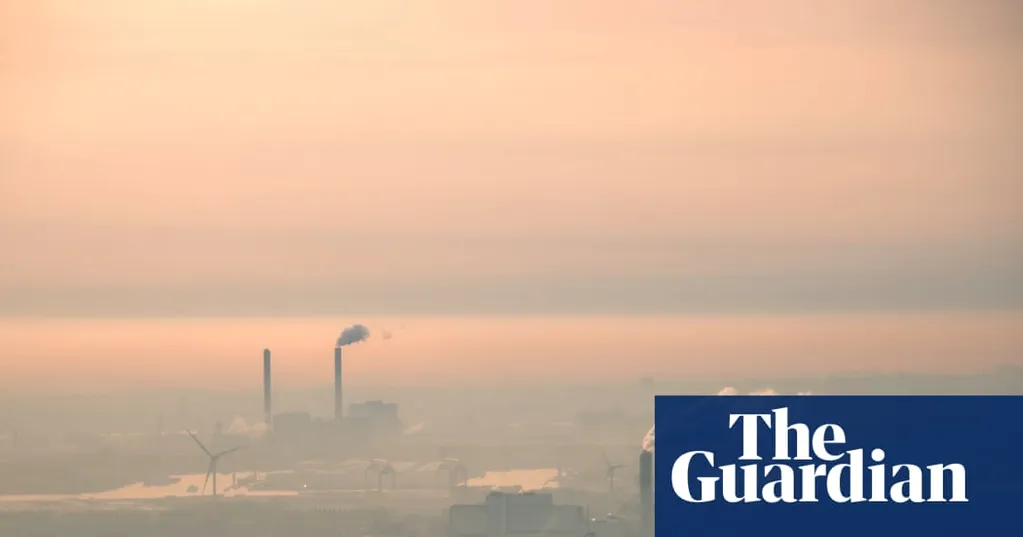Air pollution from oil and gas causes more than 90,000 premature deaths and sickens hundreds of thousands of people across the US each year, a new study shows, with disproportionately high impacts on communities of color.
More than 10,000 annual pre-term births are attributable to fine particulate matter from oil and gas, the authors found, also linking 216,000 annual childhood-onset asthma cases to the sector's nitrogen dioxide emissions and 1,610 annual lifetime cancer cases to its hazardous air pollutants.
The highest number of impacts are seen in California, Texas, New York, Pennsylvania and New Jersey, while the per-capita incidences are highest in New Jersey, Washington DC, New York, California and Maryland.
The analysis by researchers at University College London and the Stockholm Environment Institute is the first to examine the health impacts - and unequal health burdens - caused by every stage of the oil and gas supply chain, from exploration to end use.
"We've long known that these communities are exposed to such levels of inequitable exposure as well as health burden," said Karn Vohra, a postdoctoral research fellow in geography at University College London, who led the paper. "We were able to just put numbers to what that looks like."
While Indigenous and Hispanic populations are most affected by pollution from exploration, extraction, transportation and storage, Black and Asian populations are most affected by emissions from processing, refining, manufacturing, distribution and usage.
Though the latter set of activities is responsible for less air pollution overall than the former, the study shows they cause the most unequal health burden, with impacts concentrated in majority-Black areas including southern Louisiana's "Cancer Alley" and eastern Texas.
"What makes the study so valuable is how it dissects health impacts across the whole lifecycle of oil and gas - from where it comes out of the ground to where it is combusted," Timothy Donaghy, research director for the environmental group Greenpeace USA and author of previous research on the racially uneven burdens of fossil fuel pollution. "As many studies have found before, these health burdens are not shared equally - a prime example of fossil fuel racism in action."
For the analysis, published in Science Advances on Friday, the authors developed an inventory of each stage of oil and gas production and use, with data from the federal government and the University of Colorado Boulder. They plugged that data into a computer model to track pollution from each source, and used epidemiological and health data to track the adverse impacts of those emissions.
These disproportionate impacts are not inexplicable; rather, they are attributable to historic policies such as redlining - a discriminatory mortgage appraisal practice used after the Great Depression by the US government - and high rates of permitting for oil and gas processing plants in close proximity to Black communities.
Oil and gas are responsible for a major share of all air pollution-attributable health impacts in the US, the authors also found: one in five preterm births and adult deaths linked to fine particulate pollution are from the sector, the authors found, while a stunning 90% of new childhood asthma cases tied to nitrogen dioxide pollution are from oil and gas.
The study is based on data from 2017, the most recent year of complete data available. Between that year and 2023, US oil and gas production has increased by 40% and consumption by 8%, meaning the estimates are likely highly conservative.
The research comes as the Trump administration works to boost fossil fuel production and suppress renewable energy production.
"Given the reckless deregulation being pushed by Trump's EPA and the president's call to 'drill baby drill', this new study should be a flashing red warning light for the nation," said Donaghy.
Eloise Marais, a University College London professor of geography and study co-author, said she hopes the study is "picked up by the kinds of community leaders and advocacy groups that are pushing for exposure to cleaner air".
"If there was a move away from reliance on oil and gas, we would experience the climate change benefits 50, 100, 200 years from today because the greenhouse gases stay in the atmosphere so long," she said. "But communities would experience the health benefits immediately."
